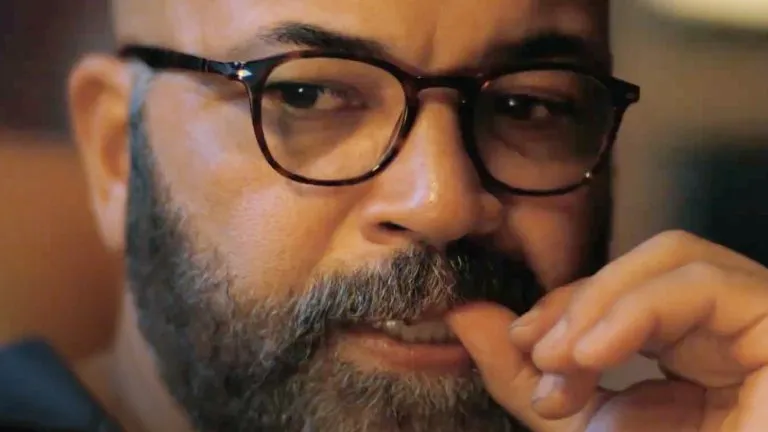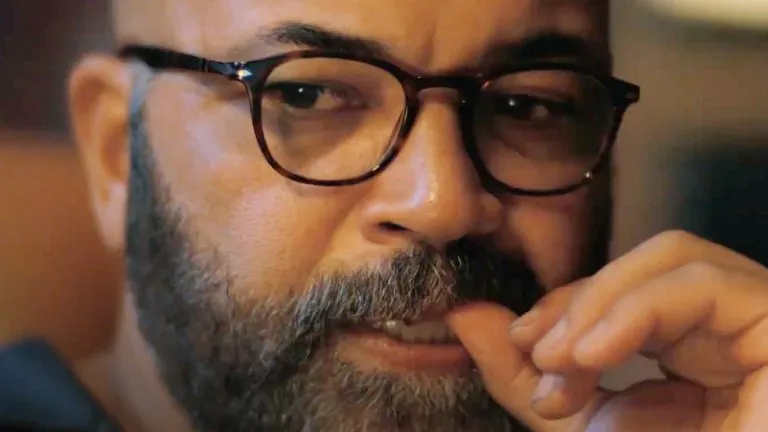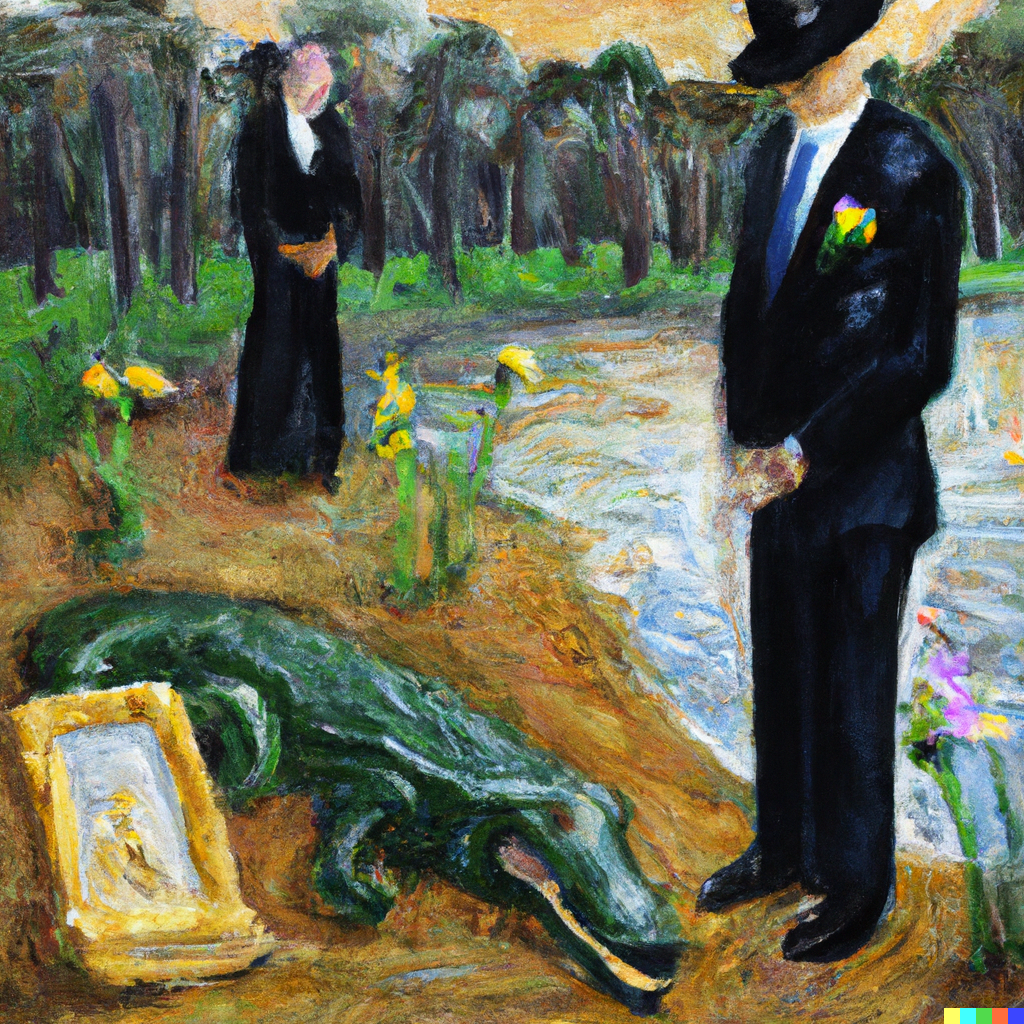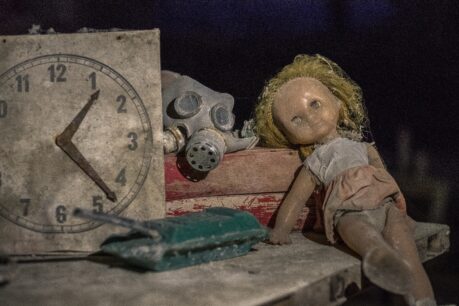The Majority Part 2
Dmitry Bykov, Translated by Ellen Vayner, October 13, 2023
Sometimes Stepan would try to explain to Vera how it all came about that he had returned from the war. Sometimes he would say that he’d missed home and, besides, they didn’t really bury him because no one had time to take care of the dead—they had to think about the living first, and so Stepan lied there for some time and then returned home. Sometimes he’d say that he came back because he missed Seryozha so much, but Vera didn’t believe that because there was no Seryozha back then—he came later. It must have been that Stepan was mixing things up, which wasn’t surprising at all under such duress. Seryozha loved Stepan very much and said that he felt calm next to his father.
Sometimes Stepan would explain that the earth wasn’t able to accept him because it had been overfed. He was almost buried when the earth somehow tossed him back
Sometimes Stepan would explain that the earth wasn’t able to accept him because it had been overfed. He was almost buried when the earth somehow tossed him back, or maybe it was another explosion, but he came to in a field and went to catch up with his unit, but it was already fully staffed, and he was given leave. And then it was over. Vera was confused by it all but was pleased that Stepan had come back, and that was enough for her. Other men didn’t come back, and their families were falling apart—no one was eating, no one was shouting. Stepan too shouted rarely and always at the most unpredictable moment. Sometimes he shouted in his sleep and sometimes during a funny movie, instead of laughing. He never laughed—”You bet he doesn’t,” Vera would say—but where others laughed, he would give out a long and loud cry, squinting his wet eyes at the guests, as if asking: How was it? The guests soon got used to it, but they didn’t come over very often—only for the winter parade or for the spring parade. It was a custom to observe a moment of silence before a holiday meal. After that, no one really knew what to talk about. There isn’t any need to talk—who knows where it can lead?—and it’s not necessary to write either. I do it mostly from inertia when there’s no work left around the house.
The first time Vera tried talking to her husband about this important matter wasn’t right away—it was a year later, when his army buddy came to visit.
She instantly realized that his army friend was also one of those, as he walked with great confidence.
He’d never been to their place before, but he found it easily even though it was on a back lot—the fifth building of the seventeenth housing development—even mailmen had trouble finding it. It seemed as if his army buddy had sensed its location. In general, the dead did everything slowly but with confidence. Stepan and his buddy spent long hours sitting around the kitchen table; they were quiet at first but then began singing songs Vera had never heard before—the lyrics were like the stuff invented by little children when they start babbling before they’re able to use common words to describe their uncommon feelings. Ubyr, aktagan—something like that, probably Turkic as it seemed to Vera. Vera felt there was something tricky in the Turkic peoples, as if they could sneak even into death and sniff something out about it. They were, after all, rather close to it. But Vera too understood something about death, and this is probably why she’d been able to lure her husband back.
Vera too wasn’t entirely homogenous—more like fifty-fifty: on the one hand, she was just Vera, but on the other, she was the daughter of Doubting Thomas. Otherwise, her husband would’ve never come back to her—what’s the point of returning to someone who can’t understand you?
Otherwise, Stepan was your average guy, and at times it seemed he’d been gravitating toward the dead even before the war. Back then he had a strange hobby, almost a mania, to fix everything, and if something wasn’t broken, he’d have to take it apart and put it back together again. They called such people handymen, and they truly could handle anything. But now it was impossible to get him to repair the fence around the backyard or fix the plumbing. “What for?” he’d say with a helpless smile. “It’s good the way it is.”
Vera soon realized that it was indeed good, especially for him: the rickety fence was closer to its ideal, perfect state, and if the plumbing eventually ceased to exist, in other words, if water stopped running through the pipes, then water would be everywhere. And Vera accepted this or learned how to fix things herself. By the way, that friend of her husband’s had been staying at their place for some time sleeping on a cot in the kitchen, when Vera suddenly asked him: “Can you at least tell me something about the war?” He looked at her with sudden interest. “What exactly?” he asked. “Well, I don’t know…” “They eat all the time,” he answered, “literally all the time. At first glance, they appear like normal people, but they’re constantly gnawing at something.” Vera began to feel sick, but then she thought: What else could they do between battles?
The war seemed to her like a place on a military map, where everything was khaki color: camouflage nets are stretched out, trenches are dug in the grass, and there are people eating inside those trenches. Then—bang-bang, and no one remembers anything.
In regard to heroic deeds, she realized right away: there were no such deeds. She already understood a little about the origin of the word, which was related to the earth—it is connected somehow to land deeds. When the earth shifts after an explosion, the dead come out, and sometimes in the turmoil of battle, they exchange places with the living, as if the dead had deeded their parcels to the living. And then they bury the living and put red crosses above them. The Red Cross mission, as Vera understood it, was really just a burial service.
None of this, however, could be said out loud—as everyone was saying that the war was sacred, a holy cause. But Vera had already learned from her husband, even though he had barely said anything out loud, that the real reason behind war was the exchange of the living and the dead—to maintain the natural cycle of life and death. There is a limited number of people on the earth; it can’t support any more. So, some of those people have to go under the ground and then come back and mix with the rest. That, by the way, would explain why some people look alike—apparently, it has nothing to do with the pseudoscience of genetics. They didn’t look alike–they were the same people. At all the holidays her husband and his friend would exchange postcards, and the cards too were the same, always with bunnies. They would send them to each other, creating another cycle through the mail.
Years passed. Seryozha indeed became a big boss and bought a TV set, then another, and then he acquired a few more appliances that no one knew what to do with, but everyday life noticeably improved. Not only was Vera still alive, she barely aged. Forty years had passed, but she wasn’t dying. She was growing tired but then realized that Stepan had already died for her—they talked about it on TV all the time. He perished for her, or instead of her, and now she had to continue living.
On top of that, the dead already made up the majority of the population; perhaps, it had been like that to begin with, but at least they were invisible back then.
On top of that, the dead already made up the majority of the population; perhaps, it had been like that to begin with, but at least they were invisible back then. The dead were called the quiet majority because they truly kept quiet most of the time and wanted more than anything else that everything should stay as it was.
By then almost no one was repairing fences, and running water was available only three days a week. The dead didn’t want to change anything. Only on occasion would they want to go to war because for them it was a chance to go back into the ground after another heroic deed, to lie about for a bit and recuperate while someone else who had been at rest would be called to life in their place. But Vera’s husband loved Seryozha so much that he didn’t want to go to war anymore. Just like before, he ate a lot, basked in the sun for long periods of time, and walked under the moon. But they never made love anymore because you have to know when to call it quits. On Sundays, Stepan went to the cemetery to tend the graves of his two neighbors who didn’t have any relatives—their graves were getting overgrown. One of the neighbors was Carpenter Platonov, and the other—Cabinet Maker Mamleyev. Stepan said that they’d been good people who understood some things but thought everything was scary. But, in reality, Stepan said, everything was as it had always been. And he would make his usual gesture, leaning all his weight to one side with all his body, unable to explain it any better. But Vera wasn’t really interested anyway.
The town was getting overgrown, but it was nothing to be concerned about.
The growth was thick, level, and green—almost like the battlefield on the khaki-color map as Vera had always imagined it.
Occasionally mushrooms would grow in the backyards. In some places they would break through the asphalt, but some yards had no asphalt left. Stepan felt a special connection with mushrooms: he could find them without fail, as if he felt their presence. And he’d say gently that mushrooms were dead too, just look at how they’re coming out from under the ground. He cut out an article from the Science and Life magazine about the special health benefits of mushrooms and that mushrooms have a conscience and even memory. Mushrooms remembered the time when there had been nothing, only mushrooms. Vera pickled and marinated the mushrooms, but there was no end to them. In winter, her husband found winter mushrooms that were just as good as porcini. Porcini were considered the tzar of mushrooms, and they probably remembered more than the others. Sometimes it wasn’t clear if it was a time to laugh or a time to cry. But that hadn’t been clear for a long time.
With time, Vera too almost completely stopped sleeping at night and would go for a walk together with her husband.
They can often be seen on the streets of fighting countries: a strong old man moving slowly and a woman eternally middle-aged, one of those women who could easily weed a garden, teach a class, or make a salad.
Everything is now done for their sake because there’s almost no one else left, but there’s truly nothing scary about that. What should we be afraid of? We’ve been afraid for so long, it’s time now to learn how to be happy.
You may also like

Eyes of the Beholden
Unspoken desires linger in the shadows of a teacher's life, revealed through art

LOST
Bessie's odyssey through stormy nights, lost love, and secret graveyards unfolds with haunting beauty in "Lost" by Sandra Dennis.

Water Rising
Amidst a flood, a woman grapples with the past, and confronts the consequences in this haunting narrative of resilience.

Book Review: White Nights by Urszula Honek
The debut short story from Polish writer Urszula Honek, White Nights, is akin to reading an account of a haunted place – one that is beautiful and devastating in equal

Beyond the Surface: The Multifaceted Lives of ‘American Fiction’
In essence, "American Fiction" and the experiences it draws from remind us that we are indeed more than the sum of our parts.

Beyond the Surface: The Multifaceted Lives of ‘American Fiction’
The narrative of “American Fiction” unfolds with a dual focus: it not only scrutinizes the unique pressures faced by Black creatives but also delves into the intricate and sometimes tense…

Uncle Bobby’s Funeral
Reluctant family faces the eccentricities of Uncle Bobby's funeral in swampy Chipley.








